
Suwalki: The Gem of Northeastern Poland
Suwalki, a charming city in northeastern Poland, is a hidden treasure waiting to be discovered. Nestled near the Suwalki Landscape Park, the city offers a perfect blend of natural beauty and cultural heritage. The serene lakes, lush forests, and rolling hills make it an ideal destination for nature lovers and adventure seekers alike. Whether you enjoy hiking, bird-watching, or simply soaking in the tranquil ambiance, Suwalki has something for everyone. The city itself is steeped in history, with roots dating back to the 17th century. Stroll through the quaint streets and you'll find beautifully preserved architecture, charming cafes, and local markets brimming with artisanal crafts. The city's museums and galleries offer a glimpse into the rich cultural tapestry of the region, showcasing everything from traditional folk art to contemporary works by local artists. Food enthusiasts will delight in the culinary offerings of Suwalki. The local cuisine is a delightful mix of Polish, Lithuanian, and Belarusian influences, featuring hearty dishes made from fresh, locally-sourced ingredients. Be sure to try the regional specialties such as kartacze (potato dumplings) and kiszka ziemniaczana (potato sausage), which are sure to tantalize your taste buds. For those seeking relaxation, Suwalki's numerous spas and wellness centers provide a perfect retreat. The city's close proximity to several lakes makes it a popular spot for water sports and fishing. Whether you're looking to unwind or embark on an adventure, Suwalki offers a myriad of experiences that promise to leave you enchanted.
Local tips in Suwalki
- Visit the Suwalki Landscape Park for breathtaking views and outdoor activities.
- Try the local cuisine at traditional restaurants for an authentic taste of Suwalki.
- Explore the city's historical sites and museums for a deeper understanding of its heritage.
- Take a relaxing boat trip on one of the nearby lakes.
- Visit during the summer to enjoy numerous local festivals and events.
Suwalki: The Gem of Northeastern Poland
Suwalki, a charming city in northeastern Poland, is a hidden treasure waiting to be discovered. Nestled near the Suwalki Landscape Park, the city offers a perfect blend of natural beauty and cultural heritage. The serene lakes, lush forests, and rolling hills make it an ideal destination for nature lovers and adventure seekers alike. Whether you enjoy hiking, bird-watching, or simply soaking in the tranquil ambiance, Suwalki has something for everyone. The city itself is steeped in history, with roots dating back to the 17th century. Stroll through the quaint streets and you'll find beautifully preserved architecture, charming cafes, and local markets brimming with artisanal crafts. The city's museums and galleries offer a glimpse into the rich cultural tapestry of the region, showcasing everything from traditional folk art to contemporary works by local artists. Food enthusiasts will delight in the culinary offerings of Suwalki. The local cuisine is a delightful mix of Polish, Lithuanian, and Belarusian influences, featuring hearty dishes made from fresh, locally-sourced ingredients. Be sure to try the regional specialties such as kartacze (potato dumplings) and kiszka ziemniaczana (potato sausage), which are sure to tantalize your taste buds. For those seeking relaxation, Suwalki's numerous spas and wellness centers provide a perfect retreat. The city's close proximity to several lakes makes it a popular spot for water sports and fishing. Whether you're looking to unwind or embark on an adventure, Suwalki offers a myriad of experiences that promise to leave you enchanted.
When is the best time to go to Suwalki?
Iconic landmarks you can’t miss
Wigierski Park Narodowy
Experience the stunning landscapes and rich biodiversity of Wigierski National Park, a hidden gem in Poland for outdoor enthusiasts and nature lovers alike.
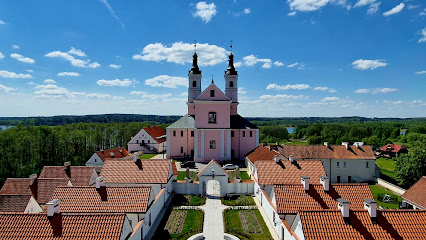
Aquapark Suwałki
Dive into fun and relaxation at Aquapark Suwałki, the ultimate water park experience in Poland for families and adventure lovers alike.
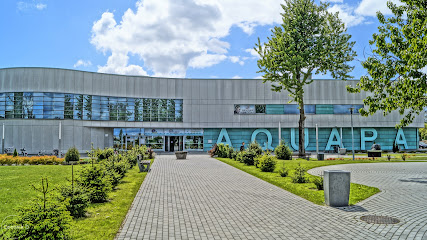
Maria Konopnicka Square
Discover the beauty and cultural significance of Maria Konopnicka Square in Suwałki, a must-visit destination for tourists seeking charm and relaxation.
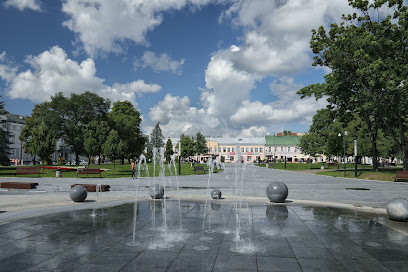
Hotel Loft 1898
Discover the charm of Suwałki at Hotel Loft 1898, a modern hotel offering luxury, fine dining, and relaxation in the heart of Poland.
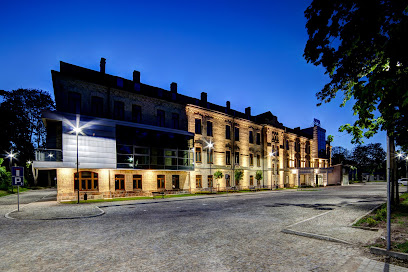
Gościniec pod Strzechą
Experience the essence of Polish hospitality at Gościniec pod Strzechą, your perfect retreat in the scenic landscapes of Suwałki.
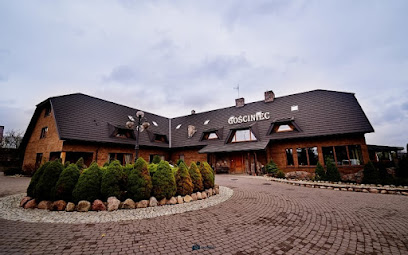
Suwalski Cultural Center
Immerse yourself in the vibrant arts scene at the Suwalski Cultural Center, a cultural hub in Suwałki, Poland showcasing local talent and creativity.
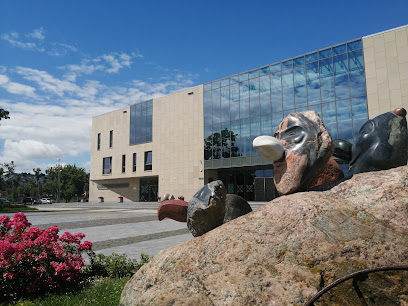
Folwark Hutta
Experience the serene beauty and warm hospitality of Folwark Hutta, a charming guest house in the heart of Suwałki, Poland.

Suwalki Landscape Park
Explore the breathtaking beauty of Suwalki Landscape Park, a natural wonderland perfect for hiking and ecological adventures in Poland.
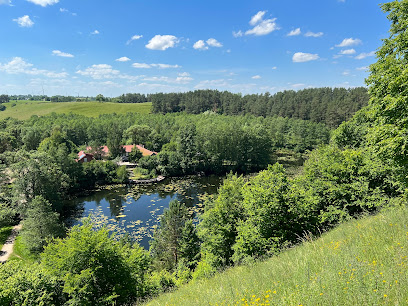
Hotel LOGOS
Discover the charm of Suwałki while enjoying a comfortable stay at Hotel LOGOS, your home away from home in Poland.
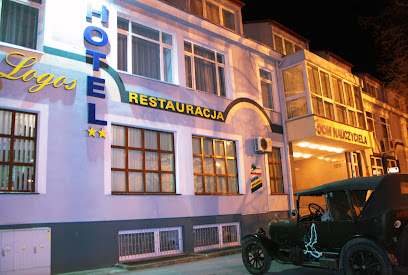
VELVET Hotel & Restaurant
Discover the charm of Suwałki at Velvet Hotel & Restaurant, where modern accommodation meets exquisite dining in an inviting atmosphere.
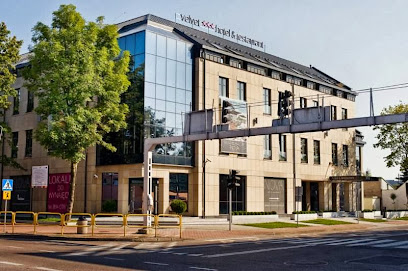
Akvilon
Experience the charm of Suwałki at Akvilon, a cozy hotel offering delightful dining, comfortable accommodations, and convenient access to local attractions.
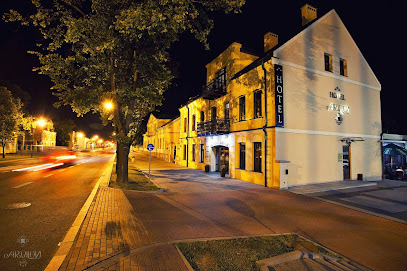
Kaczy Dołek
Discover the tranquil beauty of Kaczy Dołek, a stunning park in Suwałki perfect for relaxation, recreation, and capturing nature's serene moments.
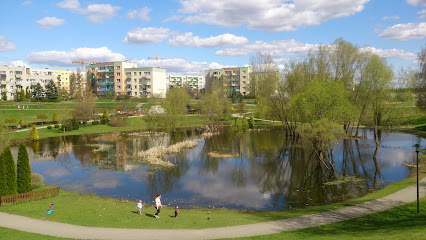
Dworzec Autobusowy w Suwałkach
Explore Suwałki and beyond from the Suwałki Bus Station, a key transportation hub connecting travelers to Poland's natural beauty and cultural richness.
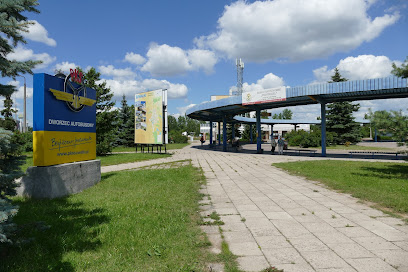
District Museum in Suwałki
Discover the captivating history and art of Suwałki at the District Museum, a treasure trove of cultural heritage in Poland.
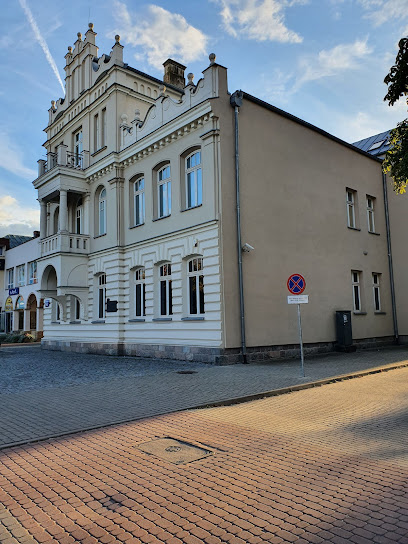
Centrum Informacji Turystycznej ***
Explore Suwałki's rich heritage and vibrant culture at the Centrum Informacji Turystycznej, your gateway to local adventures and hidden gems.
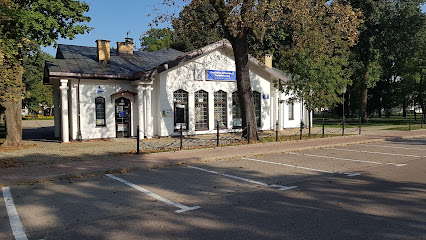
Unmissable attractions to see
Wigierski Park Narodowy
Discover the serene beauty of Wigierski Park Narodowy, where lush forests meet tranquil lakes in Poland's breathtaking national park.
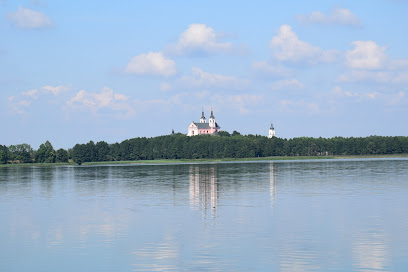
Park of the Constitution of 3 May 1791
Explore the serene beauty and historical charm of the Park of the Constitution of 3 May 1791 in Suwałki, a perfect escape for nature lovers.
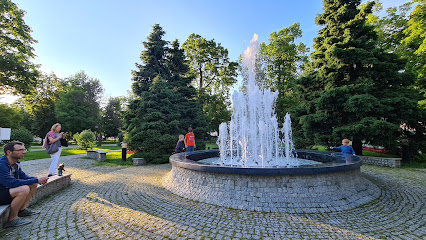
Zygmunt August Market Square
Explore the vibrant Zygmunt August Market Square in Augustów, Poland, where nature meets culture in a historic setting for an unforgettable experience.
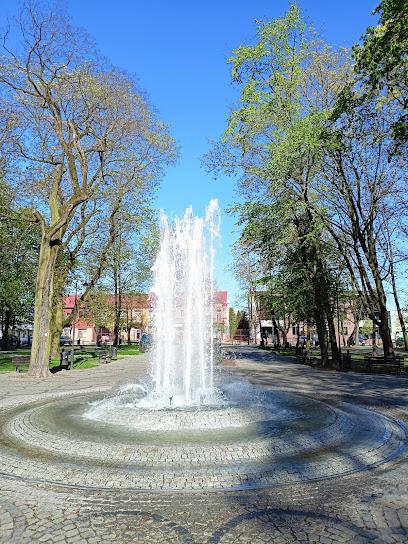
Maria Konopnicka Square
Explore the serene beauty and cultural richness of Maria Konopnicka Square in Suwałki, a perfect spot for relaxation and local festivities.
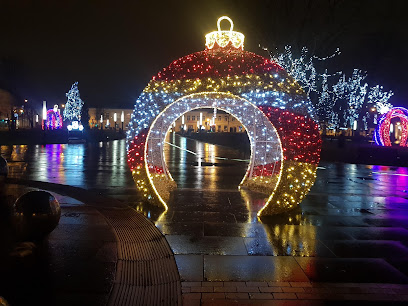
Muzeum im. Marii Konopnickiej oddział Muzeum Okręgowego w Suwałkach
Explore the rich cultural heritage of Poland at the Muzeum im. Marii Konopnickiej in Suwałki, celebrating art, literature, and local history.
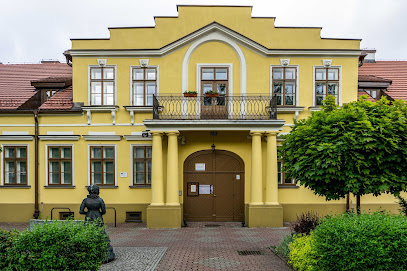
District Museum in Suwałki
Explore Suwałki's cultural heritage at the District Museum, featuring rich history and captivating fine arts that reflect the region's vibrant past.
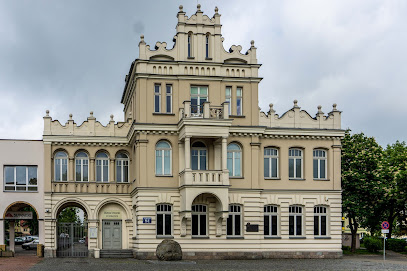
Bulwary Nad Czarną Hańczą
Explore the natural beauty and tranquility of Bulwary Nad Czarną Hańczą in Suwałki, a perfect retreat for relaxation and outdoor activities.
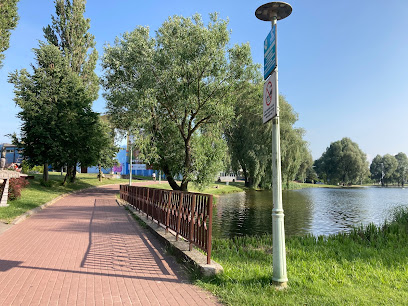
Rynek
Explore Rynek in Suwałki: A historic square filled with vibrant culture, stunning architecture, and local charm that enchants every visitor.
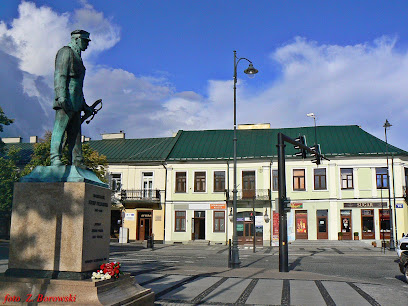
City beach in Suwałki
Experience sun-soaked relaxation and thrilling water sports at the beautiful City Beach in Suwałki, a perfect getaway for tourists and families.
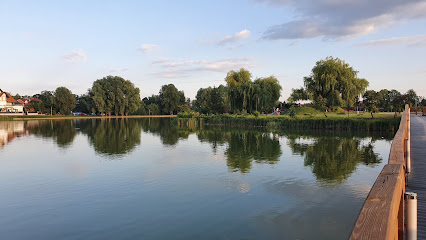
Mural - Reksio
Explore Suwałki's vibrant Mural of Reksio, a stunning tribute to Polish pop culture and a perfect spot for memorable photographs.
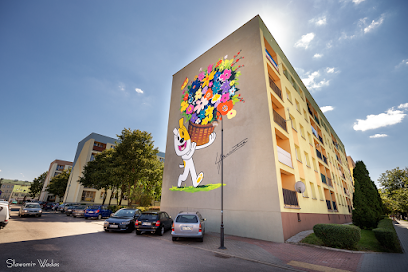
Cemetery of Jaćwingów Nature Reserve
Discover the tranquil blend of wildlife and history at Cemetery of Jaćwingów Nature Reserve in Suwałki, Poland, a unique destination for nature lovers.
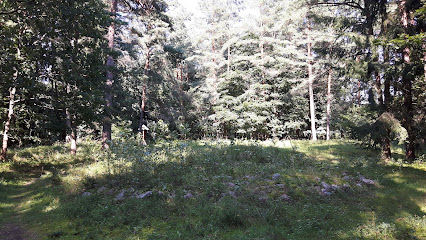
Ławeczka Marii Konopnickiej
Explore the serene Ławeczka Marii Konopnickiej, a cultural treasure in Suwałki honoring the legacy of a beloved Polish poet.
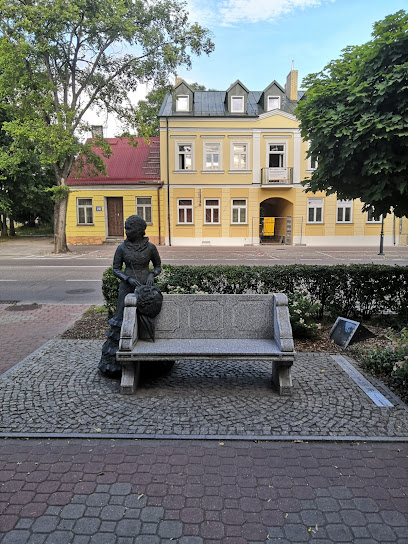
Król Błystek i Kocie Oczko
Experience the enchanting charm of Król Błystek i Kocie Oczko in Suwałki, a family-friendly tourist attraction filled with fun and adventure.
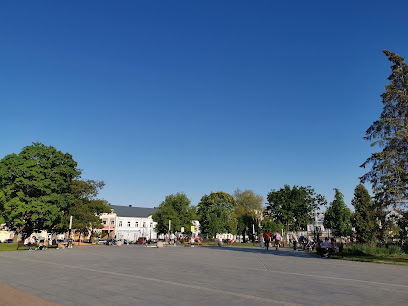
Ławeczka Bluesmana
Discover the heartfelt rhythms of blues at Ławeczka Bluesmana in Suwałki, Poland—a cultural gem celebrating music and community.
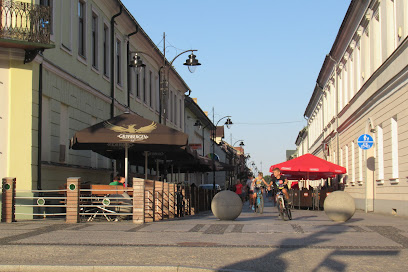
Fontanna w Parku Konstytucji 3 Maja
Explore the beauty and tranquility of the Fontanna w Parku Konstytucji 3 Maja, a stunning fountain in Suwałki's serene park setting.
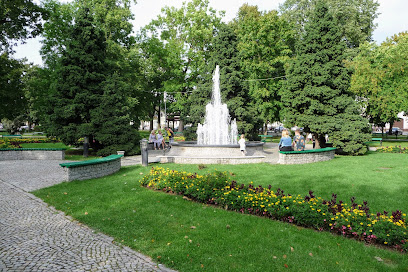
Essential places to dine
Swiss Bar
Discover Swiss Bar: A culinary gem in Suwałki offering delectable dishes and refreshing drinks in a cozy atmosphere.
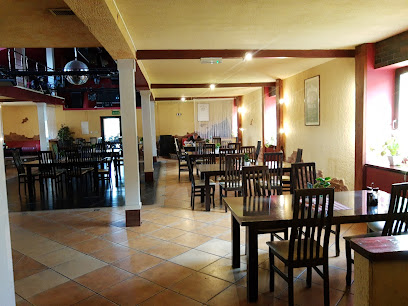
McDonald's
Savor classic fast-food delights at McDonald's Suwałki - where global flavors meet local charm.
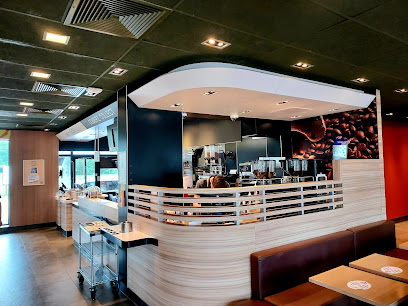
Rozmarino Przystanek ze Smakiem i Klimatem
Experience exquisite dining at Rozmarino in Suwałki - where French elegance meets Italian warmth and Polish tradition.
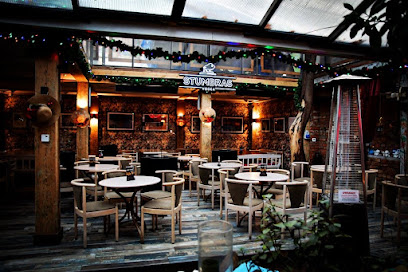
Kuchnia Tatarska u Alika
Experience authentic Tatar cuisine at Kuchnia Tatarska u Alika in Suwałki—delicious dishes served in a cozy atmosphere.
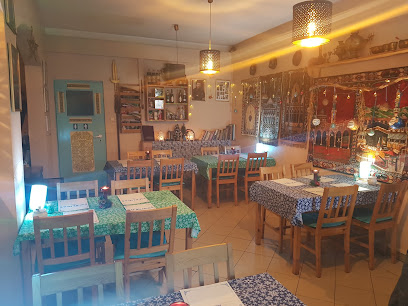
Karczma Polska
Experience authentic Polish cuisine at Karczma Polska in Suwałki - a delightful dining destination showcasing traditional flavors and warm hospitality.
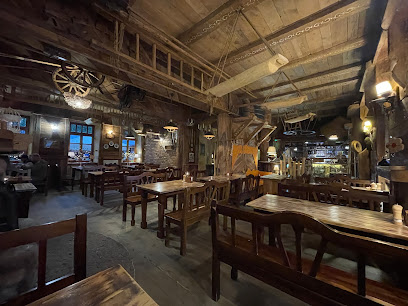
RESTAURACJA TaBeata
Discover authentic Polish cuisine at RESTAURACJA TaBeata in Suwałki - where tradition meets taste in every delightful dish.
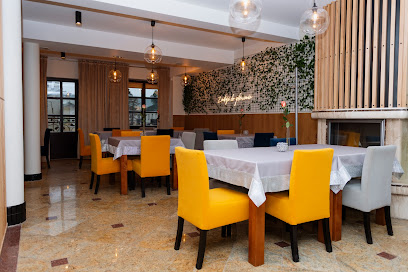
Browar Północny
Discover local flavors at Browar Północny in Suwałki: where craft beer meets authentic Polish cuisine in a cozy setting.
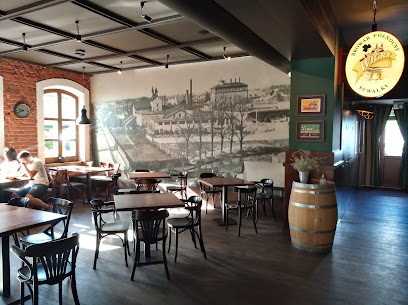
Naleśnikarnia Pod Chmurką
Discover the flavors of Poland at Naleśnikarnia Pod Chmurką – Suwałki's beloved crêperie offering delicious sweet and savory options.
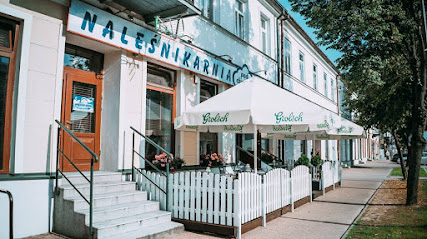
Sayuri Sushi
Discover authentic Japanese flavors at Sayuri Sushi in Suwałki - where every bite transports you to Japan.
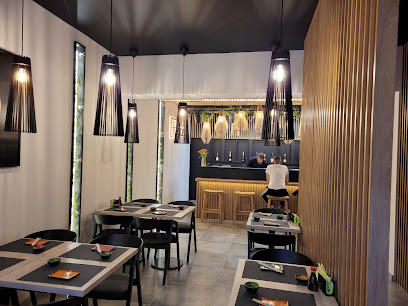
Naleśnikarnia Lemon
Discover the delightful flavors of Naleśnikarnia Lemon in Suwałki – where every bite is a taste of happiness!
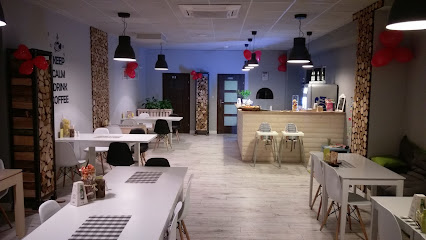
Wół i Buła
Discover the flavors of Poland at Wół i Buła - where tradition meets innovation in every delicious bite.
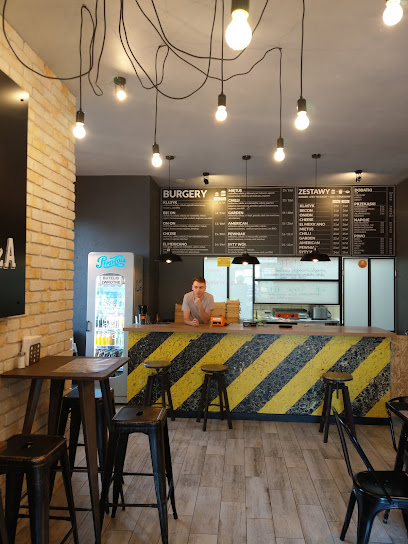
Anam kebab suwałki
Discover authentic Middle Eastern cuisine at Anam Kebab Suwałki, where every dish is crafted with passion and flavor.
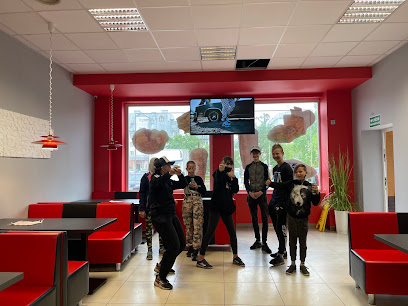
Piwiarnia Warka
Discover authentic Polish cuisine at Piwiarnia Warka in Suwałki - where tradition meets flavor in every dish.
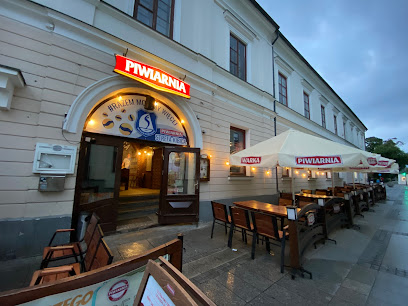
VELVET Hotel & Restaurant
Discover the perfect blend of luxury and local flavors at VELVET Hotel & Restaurant in Suwałki – where every meal is an experience.
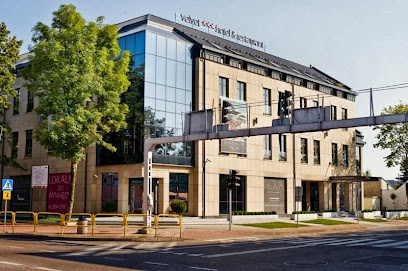
Akvilon
Discover Akvilon in Suwałki: A delightful fusion of culinary excellence and warm hospitality awaits you at this unique restaurant and hotel.
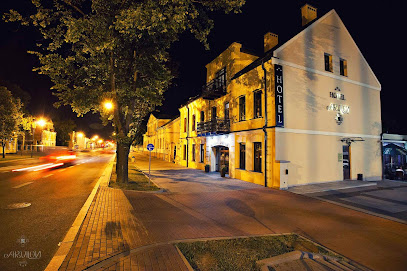
Markets, malls and hidden boutiques
Suwalki Plaza
Discover retail therapy at Suwalki Plaza, the ultimate shopping destination in Suwałki, Poland, with diverse shops, dining, and entertainment.
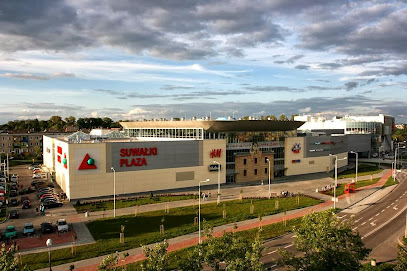
Kaufland Suwałki
Discover Kaufland Suwałki: A diverse supermarket offering local flavors, fresh produce, and quality goods for an exceptional shopping experience.
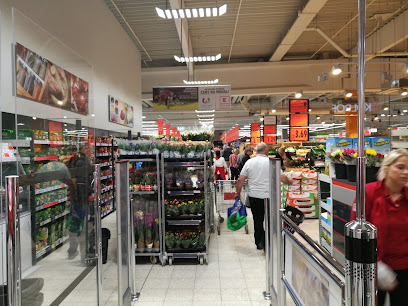
OBI
Discover endless possibilities for your home improvement projects at OBI in Suwałki, where quality meets affordability.
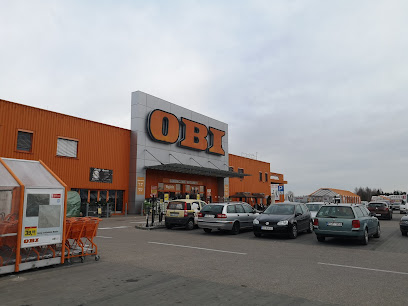
Aquapark Suwałki
Dive into adventure at Aquapark Suwałki - the ultimate water park experience in Poland with thrilling slides and relaxing saunas.
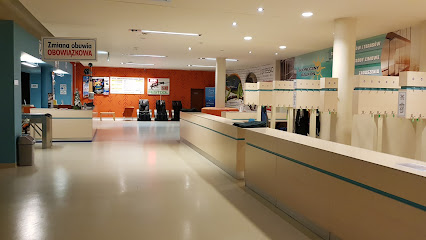
Biedronka
Experience the heart of local shopping at Biedronka in Suwałki, where you can find everything from groceries to unique Polish products.
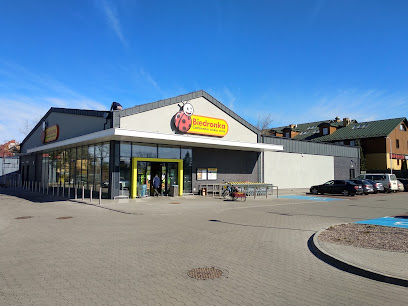
Empik
Discover the heart of Polish culture at Empik, your go-to gift shop and bookstore in Suwałki with an array of books, stationery, and unique souvenirs.
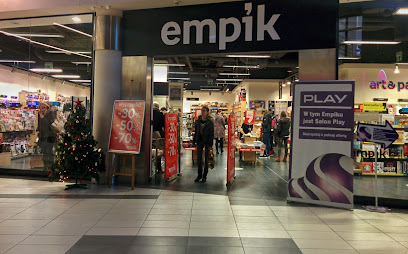
Dom Handlowy Arkadia
Explore Dom Handlowy Arkadia in Suwałki, a shopping mall offering diverse stores, delightful dining, and lively entertainment for every visitor.
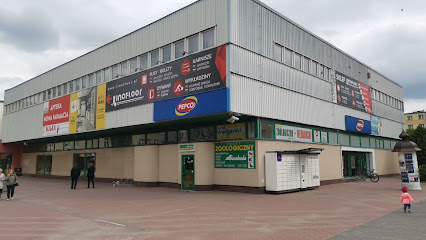
Kruk. Księgarnia. Art. biurowo - szkolne. Filipowicz K.
Discover the literary treasures of Kruk. Księgarnia, Suwałki's beloved bookstore offering an inspiring selection of books, art supplies, and stationery.
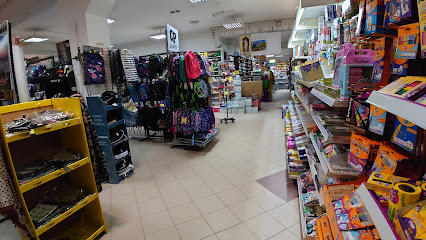
Chata1 sp.j. Sklep. Żukowski, Puchalski, Żynda
Discover Chata1 in Suwałki, your ultimate destination for quality building materials and expert advice for all your construction projects.
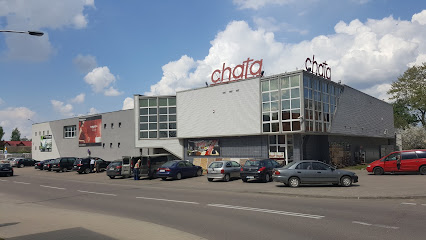
The White Bear Coffee Suwałki ul. Kościuszki
Discover the inviting ambiance and exceptional brews at The White Bear Coffee, Suwałki's favorite spot for coffee lovers.
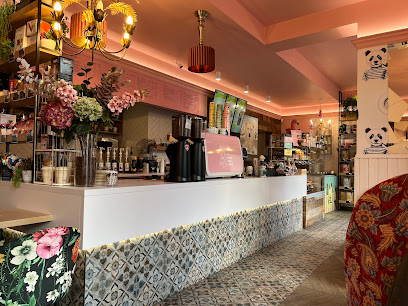
Salon OCHNIK - Plaza - Suwałki
Explore OCHNIK in Suwałki for exquisite leather coats, handbags, and accessories that combine style and quality in one premier shopping destination.
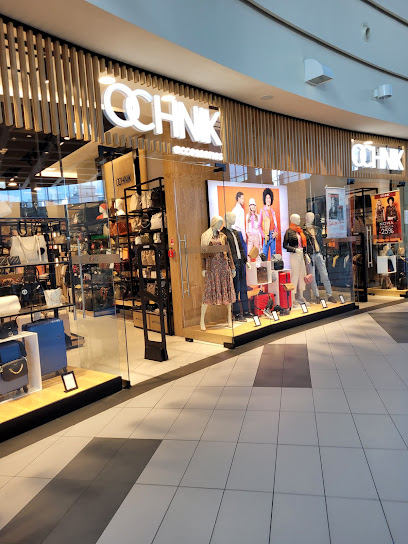
Carrefour
Explore Carrefour in Suwałki for an extensive selection of groceries and local specialties, making your shopping experience enjoyable and convenient.
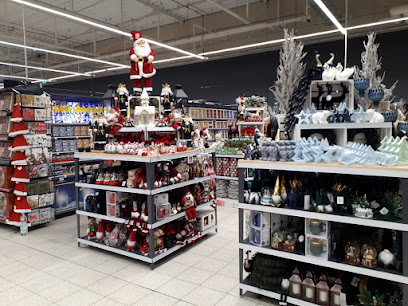
Multishop Suwałki Park handlowy
Discover the ultimate shopping experience at Multishop Suwałki Park, where fashion, food, and fun converge in one vibrant location.
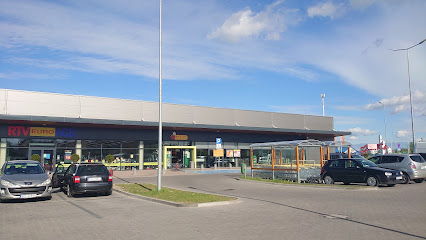
Krystian Furniture Shop
Explore exquisite handcrafted furniture at Krystian Furniture Shop in Suwałki, a perfect blend of tradition and modern design for every taste.
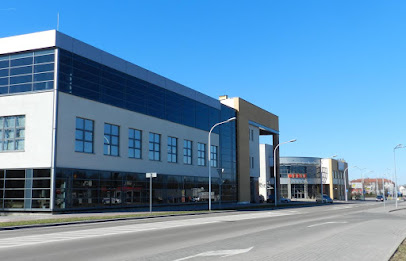
Sklep meblowy Abra Suwałki
Explore modern furniture solutions at Abra Furniture Store in Suwałki, where style meets comfort and quality.
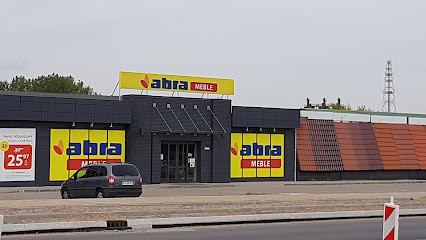
Essential bars & hidden hideouts
Swiss Bar
Dive into the 90s nostalgia at Swiss Bar, a lively bar and restaurant in Suwałki offering delicious food, drinks, and a vibrant social scene.
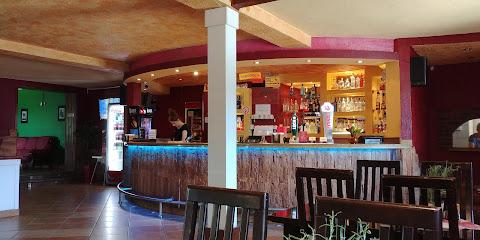
Rozmarino Przystanek ze Smakiem i Klimatem
Experience the flavors of France, Italy, and Poland at Rozmarino, a must-visit restaurant in Suwałki offering a unique culinary experience.
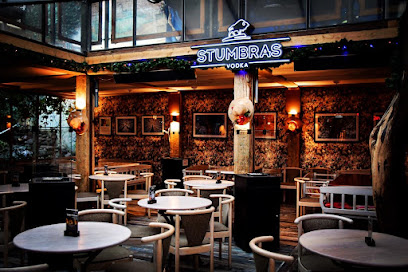
Browar Północny
Discover the charm of Browar Północny in Suwałki, where craft beer meets delicious Polish cuisine in a cozy atmosphere.
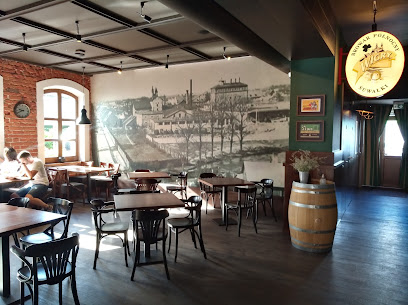
Bar Koko
Experience Suwałki's nightlife at Bar Koko - a cozy bar offering a delightful selection of beverages and a welcoming atmosphere.
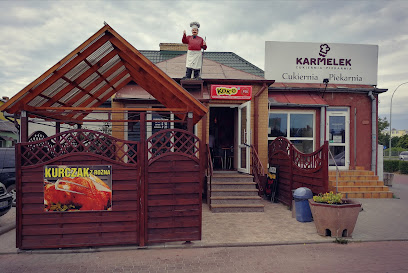
Bar Mleczny „ Pod Śliwą”
Discover the heart of Polish cuisine at Bar Mleczny 'Pod Śliwą', where tradition meets affordability in Suwałki.
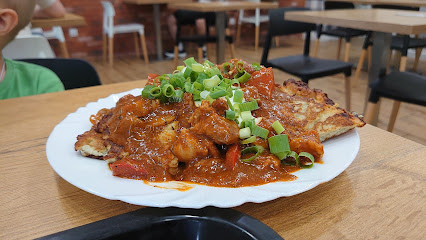
Piwiarnia Warka
Experience the rich flavors of Polish cuisine at Piwiarnia Warka in Suwałki, where local ingredients meet a cozy atmosphere.
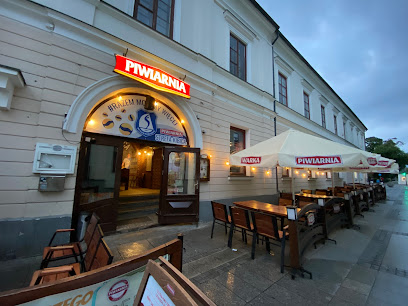
Obiady domowe u Szwagra
Discover authentic Polish cuisine at Obiady Domowe u Szwagra in Suwałki, where home-cooked meals and warm hospitality await.
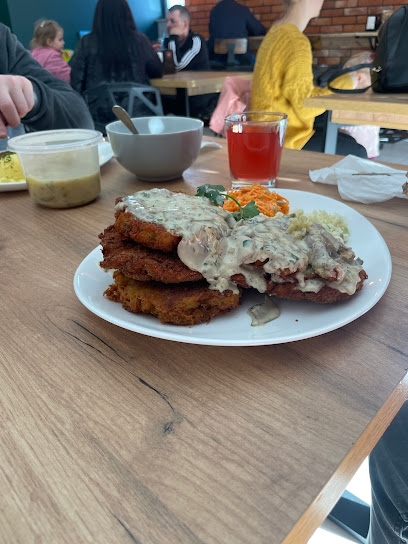
Black Pub Komin
Discover the vibrant atmosphere of Black Pub Komin in Suwałki, where local flavors meet warm hospitality for an unforgettable pub experience.
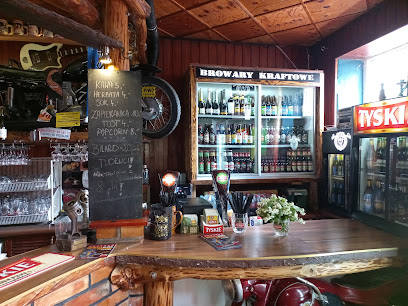
Bar Ratuszowy w Urzędzie Miasta
Discover the heart of Polish cuisine at Bar Ratuszowy in Suwałki, where every meal tells a story of tradition and flavor.
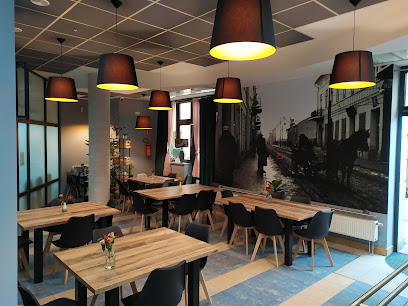
Kuźnia Food&Drink | Burger | Pizza
Savor mouthwatering burgers and pizzas in a welcoming atmosphere at Kuźnia Food&Drink, Suwałki's culinary hotspot.
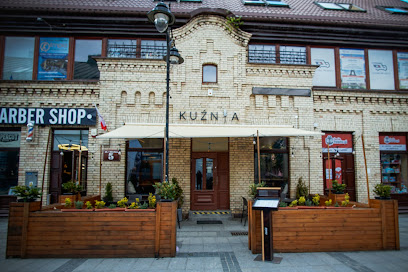
Metro Shot Bar
Discover the vibrant nightlife at Metro Shot Bar in Suwałki, where exquisite cocktails meet a warm, friendly atmosphere.
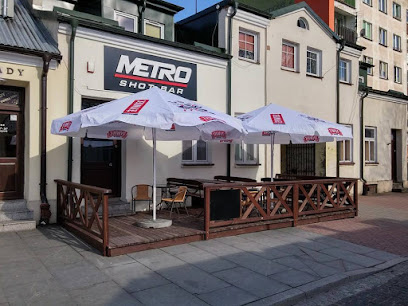
Sano Sicilian Street Food
Experience authentic Sicilian street food at Sano in Suwałki; where flavor and tradition meet in a cozy bar setting.
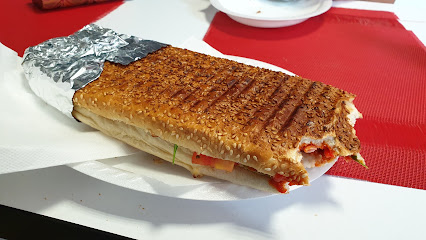
Ministerstwo Śledzia i Wódki
Discover the unique flavors of traditional Polish cuisine at Ministerstwo Śledzia i Wódki, a must-visit gastropub in Suwałki.
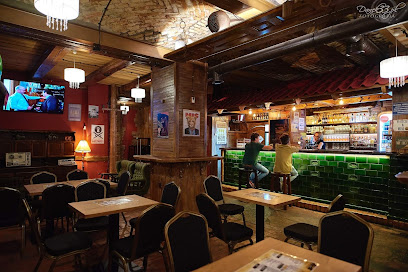
Uderz Do Baru - mobilny bar
Experience the vibrant atmosphere of Uderz Do Baru, Suwałki's unique mobile bar offering delightful drinks and a lively social ambiance.
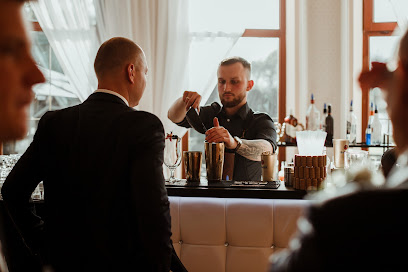
Local Phrases
-
- HelloCześć
[cheh-shch] - GoodbyeDo widzenia
[doh veed-ze-nyah] - YesTak
[tahk] - NoNie
[nyeh] - Please/You're welcomeProszę
[proh-sheh] - Thank youDziękuję
[dzyen-koo-yeh] - Excuse me/SorryPrzepraszam
[pzhe-prah-shahm] - How are you?Jak się masz?
[yahk syeh mah-sh] - Fine. And you?Dobrze. A ty?
[doh-bzheh. ah tih] - Do you speak English?Czy mówisz po angielsku?
[tshi moo-veesh poh ahn-gyehl-skoo] - I don't understandNie rozumiem
[nyeh roh-zoo-myem]
- HelloCześć
-
- I'd like to see the menu, pleaseChciałbym zobaczyć menu, proszę
[h-chyah-bim zoh-bah-chich meh-noo, proh-sheh] - I don't eat meatNie jem mięsa
[nyeh yem myen-sah] - Cheers!Na zdrowie!
[nah zdroh-vyeh] - I would like to pay, pleaseChciałbym zapłacić, proszę
[h-chyah-bim zah-plah-chich, proh-sheh]
- I'd like to see the menu, pleaseChciałbym zobaczyć menu, proszę
-
- Help!Pomocy!
[poh-mo-tsi] - Go away!Idź precz!
[eej prech] - Call the Police!Zadzwoń po policję!
[zahd-zvon po po-leet-syeh] - Call a doctor!Zadzwoń po lekarza!
[zahd-zvon po leh-kah-zah] - I'm lostZgubiłem się
[zgoo-byem syeh] - I'm illJestem chory
[yeh-stem hoh-rih]
- Help!Pomocy!
-
- I'd like to buy...Chciałbym kupić...
[h-chyah-bim koo-peech] - I'm just lookingTylko się rozglądam
[tih-koh syeh rohz-gwon-dahm] - How much is it?Ile to kosztuje?
[ee-leh toh kohs-too-yeh] - That's too expensiveTo jest za drogie
[toh yest zah droh-geh] - Can you lower the price?Czy możesz obniżyć cenę?
[tshi mo-zhesz ohb-nyoo-ich chen-eh]
- I'd like to buy...Chciałbym kupić...
-
- What time is it?Która jest godzina?
[ktoo-rah yest goh-dzee-nah] - It's one o'clockJest pierwsza
[yest pyehr-vshah] - Half past (10)Pół do jedenastej
[poow doh yeh-nyah-stehy] - MorningRano
[rah-noh] - AfternoonPopołudnie
[po-poo-wood-nyeh] - EveningWieczór
[vyeh-choor] - YesterdayWczoraj
[vchoh-rye] - TodayDziś
[dzish] - TomorrowJutro
[yoo-troh] - 1Jeden
[yeh-den] - 2Dwa
[dvah] - 3Trzy
[tshi] - 4Cztery
[ch-teh-rih] - 5Pięć
[pyentch] - 6Sześć
[sheh-shch] - 7Siedem
[shyeh-dem] - 8Osiem
[oh-syem] - 9Dziewięć
[dzye-vyentch] - 10Dziesięć
[dzye-shyentch]
- What time is it?Która jest godzina?
-
- Where's a/the...?Gdzie jest...
[g-jeh yest] - What's the address?Jaki jest adres?
[yah-ki yest ah-drehss] - Can you show me (on the map)?Czy możesz mi pokazać (na mapie)?
[tshi mo-zhesz mee poh-kah-zahch (nah mah-pyeh)] - When's the next (bus)?Kiedy jest następny (autobus)?
[kieh-deh yest nah-stehp-ny (ow-toh-boos)] - A ticket (to ....)Bilet (do ....)
[bee-let (doh)]
- Where's a/the...?Gdzie jest...
History of Suwalki
-
The origins of Suwałki date back to the late 17th century. It was officially founded in 1690 when King John III Sobieski granted a charter to the Camaldolese monks to establish a settlement. The monks were pivotal in developing the area, constructing buildings and inviting settlers to cultivate the land. Suwałki's strategic location contributed to its growth as a prominent trading hub.
-
During the 18th century, Suwałki was part of the Polish-Lithuanian Commonwealth. The town prospered under the Commonwealth, benefiting from trade and agriculture. The multicultural population, including Poles, Lithuanians, Jews, and Russians, contributed to the town's vibrant cultural mosaic.
-
In the late 18th century, the partitions of Poland by Prussia, Russia, and Austria drastically changed Suwałki's political landscape. In 1795, after the third partition, Suwałki became part of Prussia and later the Duchy of Warsaw. Following the Congress of Vienna in 1815, it was incorporated into the Russian Empire, marking a period of significant administrative and cultural changes.
-
The 19th century saw substantial growth and modernization in Suwałki. The introduction of railways in the 1890s connected the town to major cities, boosting commerce and industry. The population increased, and new architectural styles emerged, exemplified by the Neo-Gothic Church of St. Alexander and the Neo-Classical Suwałki Town Hall.
-
During World War I, Suwałki witnessed significant turmoil. The town changed hands multiple times between German and Russian forces. The war caused extensive damage to infrastructure and homes, and the local population suffered from the occupation and wartime hardships. Post-war, Suwałki became part of the newly re-established Polish state in 1918.
-
World War II brought devastation to Suwałki. The town was occupied by Nazi Germany in 1939, and the Jewish community, which had thrived for centuries, faced persecution and annihilation. The Suwałki region also saw significant resistance activity, with local partisans fighting against the occupiers. The war left deep scars on the town's demographic and cultural fabric.
-
After World War II, Suwałki underwent significant reconstruction. The town was rebuilt with a blend of restored historical buildings and new Soviet-style architecture. The post-war period also saw industrialization, with the establishment of factories and increased employment opportunities. Suwałki's cultural life revived, with the opening of theaters, museums, and cultural centers.
-
Today, Suwałki is a vibrant town that blends historical heritage with modern development. It boasts numerous cultural institutions, such as the Suwałki Region Museum and the Suwałki Cultural Center. Annual events like the Suwałki Blues Festival attract visitors from all over the world. The town is also known for its picturesque landscapes, including the nearby Suwałki Landscape Park, making it a popular destination for nature enthusiasts.
Suwalki Essentials
-
Suwalki is located in northeastern Poland, close to the borders with Lithuania and Belarus. The nearest major international airport is Warsaw Chopin Airport, approximately 300 kilometers away. From Warsaw, you can take a train or a bus to Suwalki. The train journey takes around 4 to 5 hours, while buses are also available and usually take a similar amount of time. Alternatively, you can rent a car and drive to Suwalki, which allows you to explore the scenic landscapes of the Masurian Lake District along the way.
-
Suwalki is a relatively small city, making it easy to navigate on foot. For longer distances, local buses and taxis are available. The bus network is reliable and connects various parts of the city, as well as nearby towns and villages. Taxis are reasonably priced, but it is advisable to use reputable taxi services. Renting a bicycle is also a popular option for exploring the city and its beautiful surroundings.
-
The official currency in Poland is the Polish Zloty (PLN). Credit and debit cards are widely accepted in most hotels, restaurants, and shops in Suwalki. However, it is advisable to carry some cash, especially for small purchases or when visiting rural areas. ATMs are readily available throughout the city, and currency exchange offices (kantors) offer competitive rates.
-
Suwalki is generally a safe city for tourists. However, like any other destination, it is important to take standard precautions. Avoid walking alone at night in poorly lit areas and keep an eye on your belongings in crowded places. Pickpocketing can occur, especially in busy markets or tourist spots. There are no specific neighborhoods in Suwalki known for high crime rates targeting tourists.
-
In case of an emergency, dial 112 for immediate assistance, which will connect you to police, fire, and medical emergency services. Suwalki has a well-equipped hospital and several clinics where you can receive medical care. Pharmacies are also available for over-the-counter medications. It is highly recommended to have travel insurance that covers medical emergencies.
-
Fashion: Do dress comfortably and appropriately for the weather. In religious sites, dress modestly and cover your shoulders and knees. Religion: Do respect local customs and traditions. When visiting churches, remain quiet and respectful. Public Transport: Do validate your ticket when using public transport. Don't eat or drink on public transport. Greetings: Do greet people with a handshake. Poles appreciate direct eye contact during greetings. Eating & Drinking: Do try local dishes and accept food offerings graciously. Don't leave food on your plate, as it is considered wasteful.
-
To experience Suwalki like a local, visit the city's vibrant markets, such as the Suwalki Marketplace, where you can buy fresh produce and traditional Polish goods. Engage with locals, who are often friendly and willing to share insights about their city. Don't miss exploring the nearby Wigry National Park, which offers stunning natural landscapes and outdoor activities. For a unique experience, try kayaking on the Czarna Hancza River or cycling along the Green Velo trail.
Trending Landmark in Suwalki
-
Wigierski Park Narodowy
-
Aquapark Suwałki
-
Maria Konopnicka Square
-
Hotel Loft 1898
-
Gościniec pod Strzechą
-
Suwalski Cultural Center
-
Folwark Hutta
-
Suwalki Landscape Park
-
Hotel LOGOS
-
VELVET Hotel & Restaurant
-
Akvilon
-
Kaczy Dołek
-
Dworzec Autobusowy w Suwałkach
-
District Museum in Suwałki
-
Centrum Informacji Turystycznej ***
Nearby Cities to Suwalki
-
Things To Do in Marijampolė
-
Things To Do in Kaunas
-
Things To Do in Bialystok
-
Things To Do in Jonava
-
Things To Do in Olsztyn
-
Things To Do in Vilnius
-
Things To Do in Panevėžys
-
Things To Do in Šiauliai
-
Things To Do in Klaipėda
-
Things To Do in Elblag
-
Things To Do in Utena
-
Things To Do in Warsaw
-
Things To Do in Gdansk
-
Things To Do in Sopot
-
Things To Do in Liepaja








